THE ULTIMATE GUIDE Bitcoin Hardware Wallet
The Most Secure Way to Store Your Cryptocurrencies
Are your Bitcoin and cryptocurrencies safe? To be sure, you need to buy a Bitcoin hardware wallet.
It’s important to choose a secure crypto wallet to store your Bitcoin and other cryptocurrencies. If you keep your Bitcoin at an exchange, mobile app or online wallet, you risk losing your money.
You usually use different types of Bitcoin wallets for different purposes. However, when you don’t use your Bitcoin, you should transfer them to a hardware wallet for safe storage.
A hardware wallet is a device that is designed to protect your Bitcoin and cryptocurrency. In other words, it’s designed to be safe.
Your Bitcoin (private keys) is encrypted on the device and kept offline for extra security. That way, your Bitcoin is protected against computer hackers and malicious viruses on the internet.
You should always use a hardware wallet together with the online wallet at the exchange where you buy/sell Bitcoin.
A Bitcoin hardware wallet has the best balance between high security and ease of use. It’s both easy to use and the safest Bitcoin wallet you can buy.
In this guide, we will teach you everything you need to know about hardware wallets. You will learn how to install and use a hardware wallet, avoid scams and much more. At the end of the guide, we have also listed the most popular hardware wallets on the market.
We will help you buy a secure Bitcoin hardware wallet and protect your cryptocurrency!
CHAPTER 1
What Is a Bitcoin Hardware Wallet?
CHAPTER 2
Pros and Cons with Hardware Wallets

CHAPTER 3
How to Avoid Hardware Wallet Scams
CHAPTER 4
How to Store and Protect Your Bitcoin
CHAPTER 5
Benefits of Owning Two Hardware Wallets
CHAPTER 6
Which Is the Best Hardware Wallet?
WINNER
Secure Your Bitcoin/Crypto
FAQ
Frequently Asked Questions
FORUM
Join The Discussion
Top 3 Bitcoin Wallets - February 2026
| # | Most PopularWallet | Rating | Security | Price | Popularity | Advantages | |
|---|---|---|---|---|---|---|---|
 |  | 100 Read Review | Very High | $59 – $269 | Most Popular |
| |
 | 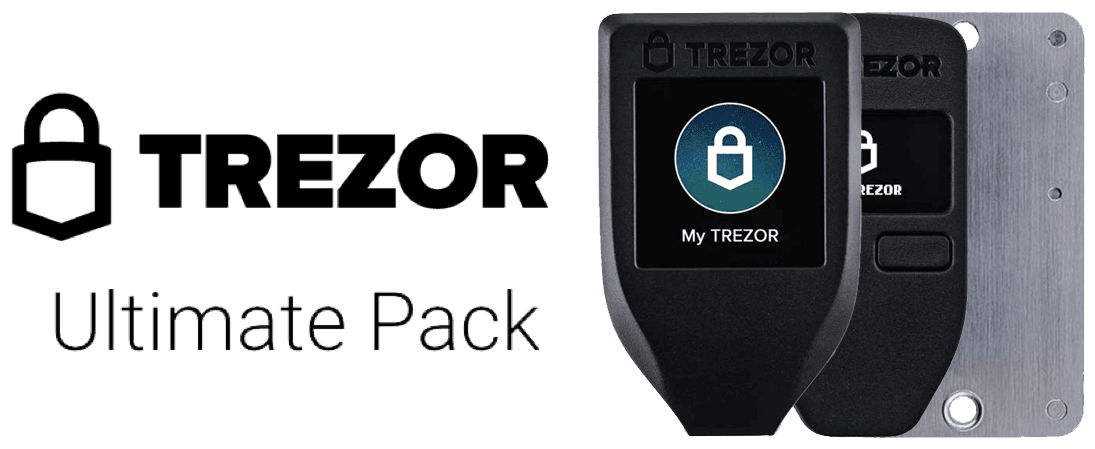 | 95 | Best Security | $279 (package) | High |
| |
 |  | 92 Read Review | High | $55 – $550 | High |
| |
| 4 |  | 91 | High | $120 | Medium |
| |
| 5 |  | 80 | Medium | Online Wallet | Medium |
| |
| 6 |  | 65 Read Review | Low | Online Wallet | High |
| |
| 7 |  | 60 | Medium | Online Wallet | Medium |
| |
| 8 |  | 49 | Medium | $129 | Low |
|
Welcome to CryptoRunner! I’m David Andersson, co-founder of this site.
We understand that cryptocurrencies can be confusing and frustrating. That’s why we are here to help you.
Keep reading!

CHAPTER 1
What Is a Bitcoin Hardware Wallet?

A hardware wallet is a physical electronic device, built for the sole purpose of protecting cryptocurrencies. They may look like a USB stick and uses different types of security measures to protect your Bitcoin.
Bitcoin wallets are especially safe because the wallet is not connected to the internet and has special software installed.
You don’t have to worry about hackers because your Bitcoin and cryptocurrencies are kept offline, also called cold storage. Moreover, it’s impossible to install other software on it, which prevent many security holes found in computers.
When you want to transfer Bitcoin/cryptocurrency from your hardware wallet, simply connect it to your mobile/computer and enter your PIN. It works similar to your bank login device (DIGIPASS). You should only buy a hardware wallet with its own screen (otherwise it’s not as safe).
At the end of the guide, you will find secure hardware wallets that we recommend. The hardware wallet needs a screen and PIN code to avoid computer attacks when you connect it. Then you don’t need to worry about malware or computer viruses.
You can even connect the wallet to a computer with viruses without risking your money on the hardware wallet. To access the cryptocurrency, both the PIN code and the hardware wallet are required.
Think of a hardware wallet as your own private vault. At the same time, it’s more convenient than storing gold at home. A hardware wallet protects 100 dollars just as efficient as a few million dollars.
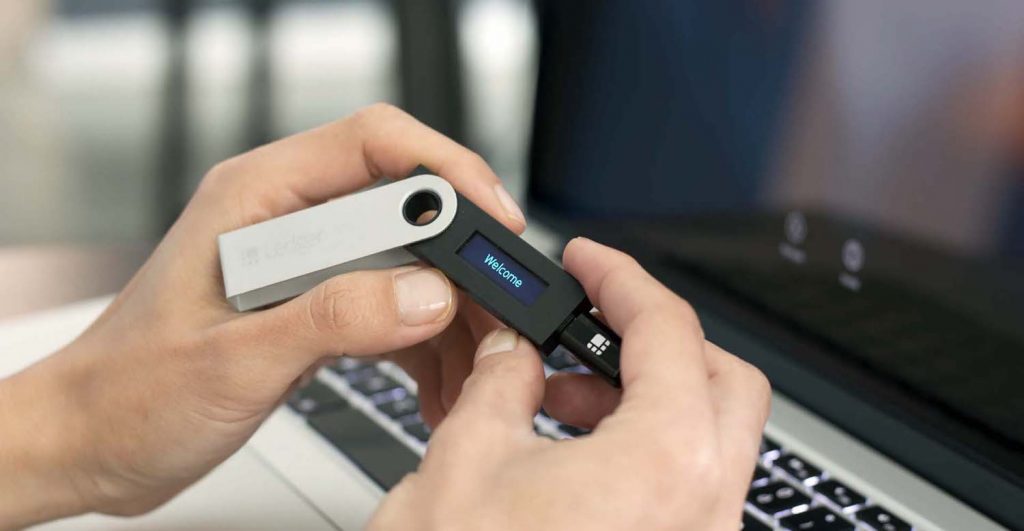
How Does Hardware Wallets Work?
It’s not necessary to understand how Bitcoin and hardware wallets work to use the technology. However, it’s important to understand how to use and store Bitcoin safely.
We will explain how a hardware wallet works for those who are interested. To understand how it works, you need some basic understanding of Bitcoin. If you’re a Bitcoin beginner, we recommend that you start by reading our guide: Get Started with Bitcoin.
When you buy Bitcoin, you get a public and private key. The public key is used to generate a Bitcoin address for receiving Bitcoin. Think of it as your email address. While the private key is used to approve transactions with a digital signature. This is your password.
In other words, you need to protect your private key properly. Storing your private keys online or on your computer connected to the internet is not secure. Here you need a hardware wallet which encrypts your keys, keeps them offline and helps sign secure transactions.
If you buy Bitcoin and cryptocurrencies at an exchange, an online wallet is used, also called a hot wallet. A hardware wallet, on the other hand, is offline which is described as cold storage or a cold wallet.
You also have other security features when using a hardware wallet. But it’s mainly private and offline storage of cryptocurrency which makes hardware wallets the safest solution.
CHAPTER 2
Pros and Cons with Hardware Wallets

We recommend everyone to buy a hardware wallet to protect their Bitcoin and cryptocurrency. A hardware wallet combines the security of a paper wallet with the convenience of an online wallet.
There is no safer way to store cryptocurrencies. For that reason, the advantages clearly outweight the disadvantages. Below we have listed the main pros and cons with hardware wallets.
Pros:
- The safest way to store your Bitcoin and cryptocurrencies is with a hardware wallet.
- A hardware wallet is very user-friendly compared to other cold storage such as paper wallets.
- They are immune to computer virus and malware that steal Bitcoin on the internet.
- Easy to install and get started. Suitable for beginners because no prior knowledge is required.
Cons:
- A hardware wallet is not free as many mobile apps (but significantly safer).
- If someone steals your hardware wallet and recovery password, no customer service is available. Bitcoin means more freedom but also more responsibility (always backup your wallet).
CHAPTER 3
How to Avoid Hardware Wallet Scams
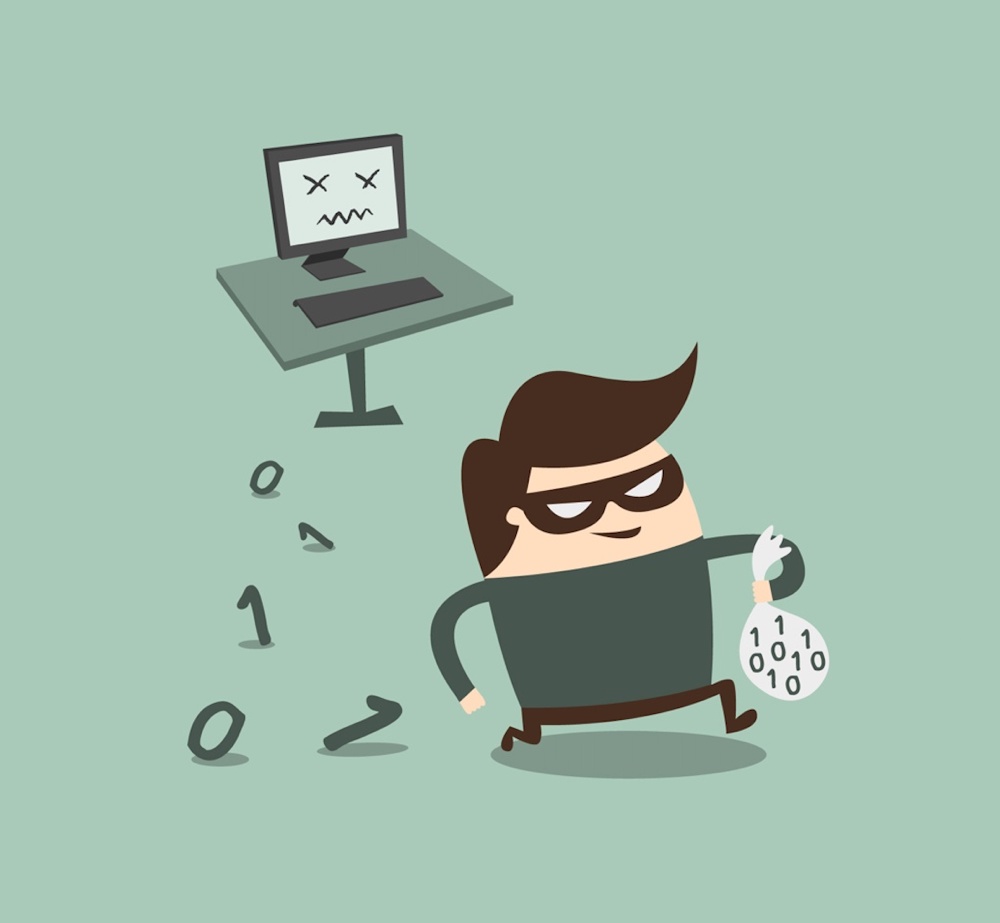
There will always be fraud when money is involved. Here, we help you avoid scams when you buy and use hardware wallets. As long as you avoid these risks, you don’t need to worry.
Below we have listed the most important things to protect your bitcoin and avoid wallet scams. Read the points carefully!
- The first and most important thing to learn as a Bitcoin beginner is NOT to share your private key. As said, it works as your password. A Bitcoin hardware wallet helps you to protect it.
- The second is ALWAYS to double-check the Bitcoin address to which you send Bitcoin. Your hardware wallet can’t protect you from sending bitcoin to the wrong address.
- Only order a hardware wallet from the official company website. Avoid all types of resellers and never buy a used hardware wallet. Also, check that the device is unused and the safety tape on the package.
- When you install your hardware wallet, you will receive a recovery password which is used if you lose your wallet. NOTE: Do not take a picture of the password! You risk all your cryptocurrency on your hardware wallet if you take a picture with an insecure and internet-connected phone.
- Only buy hardware wallets from trusted companies. The crypto market is growing rapidly, and many new Bitcoin companies are started. We recommend using only well-known and trusted products. Ledger is the most popular and cheapest hardware wallet on the market.
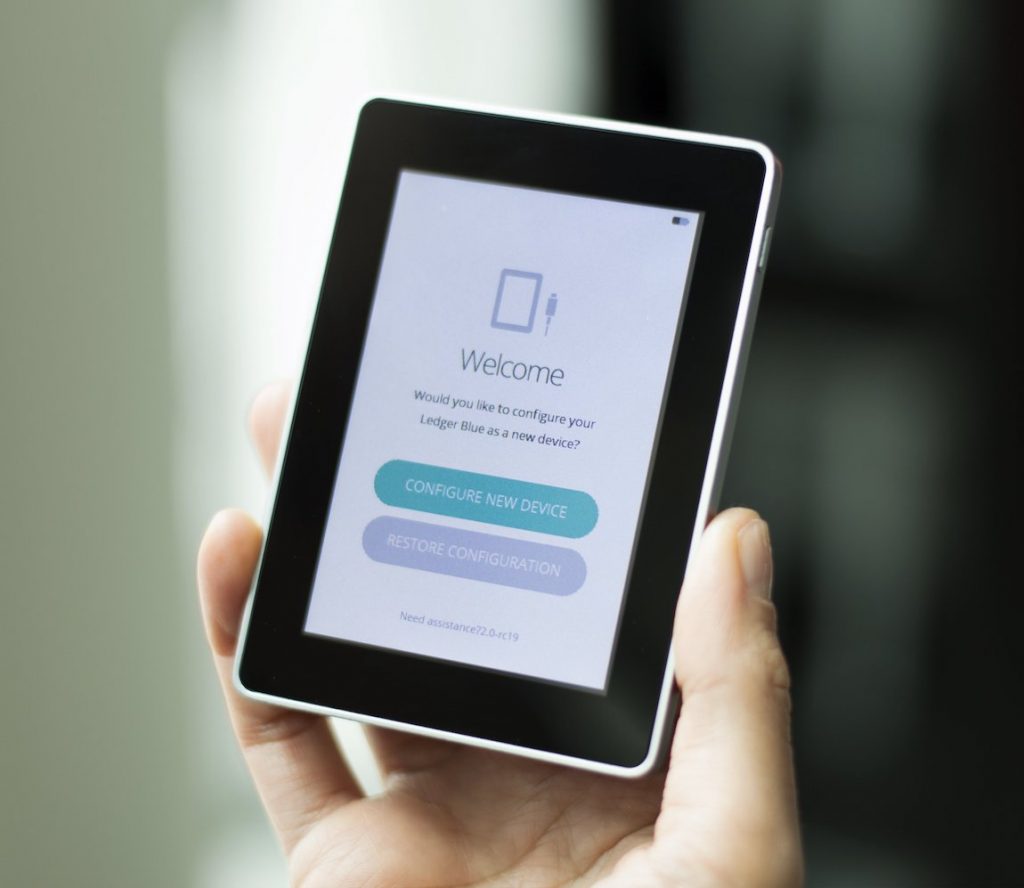
Setting up a Secure Hardware Wallet
At the end of the guide, we have listed the most popular hardware wallets on the Bitcoin market. We have tested them, and they all have simple instructions. The installation is similar except some details that can vary.
A Bitcoin hardware wallet is created to be safe and easy to use. In the pack, there are always clear step-by-step instructions.
When you install your hardware wallet, you will choose a PIN code and get a recovery password (also called recovery seed). Your PIN must be secret, do not share it with anyone! Without knowing the PIN, nobody can transfer Bitcoins from your hardware wallet.
Always back up your Bitcoin wallet. Your recovery seed is a backup of your hardware wallet. In other words, you can restore your wallet if stolen or lost.
Remember to keep your hardware wallet and recovery seed in different locations. For maximum security, keep your recovery seed in a safe that is fireproof.
There is also advanced security protection that you can choose during installation. For example, offline installation, double passwords, and hidden wallets. This further increases your anonymity and security.
Also, test the device, so you know how it works before you transfer large crypto amounts with it. It’s both easy and fast to send/receive cryptocurrencies.
In the next section, we explain how to protect and store your Bitcoin properly.
CHAPTER 4
How to Store and Protect Your Bitcoin
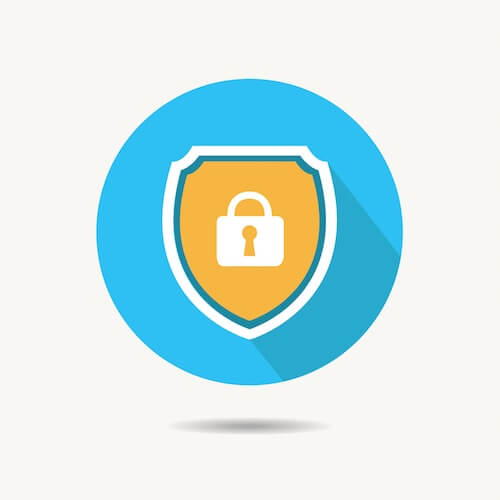
If you keep your Bitcoin at an exchange, you’re using an online wallet meaning that the company controls your private keys. The exchange has the power to restrict or close your account. Also, if you company goes bankrupt, you will lose your Bitcoin.
However, it’s actually not your Bitcoin. The exchange owns all cryptocurrencies and have a debt to their users. No matter how good the security is, the risk of hackers will never disappear. An example of this was the popular exchange Mt. Gox who lost big sums of their users’ Bitcoin.
If you keep your Bitcoin on your computer or mobile phone, you’re using a software wallet. This is also not safe because Internet-enabled devices are vulnerable to viruses and malicious code.
A hardware wallet removes both the risk of third parties and malicious code. Your private keys are stored on the device that only you control. All private keys should be kept in a private wallet. This is the correct and safe way to store your Bitcoin.
Hardware wallets use a PIN code, recovery password, and other security features that make it almost impossible for anyone to steal your Bitcoin.
There are many different types of Bitcoin wallets that are used for different purposes. For example; If you want to shop in a store with Bitcoin, it’s easiest to use a software wallet on your mobile. If you’re trading cryptocurrencies on an exchange, you need an online wallet for your account
You usually use more than one wallet because they’re good for different occasions. But when you don’t use your cryptocurrency you need to keep them safe. Then a hardware wallet is needed.
Read our guide about Bitcoin Wallets to learn more about different types of wallets and security.
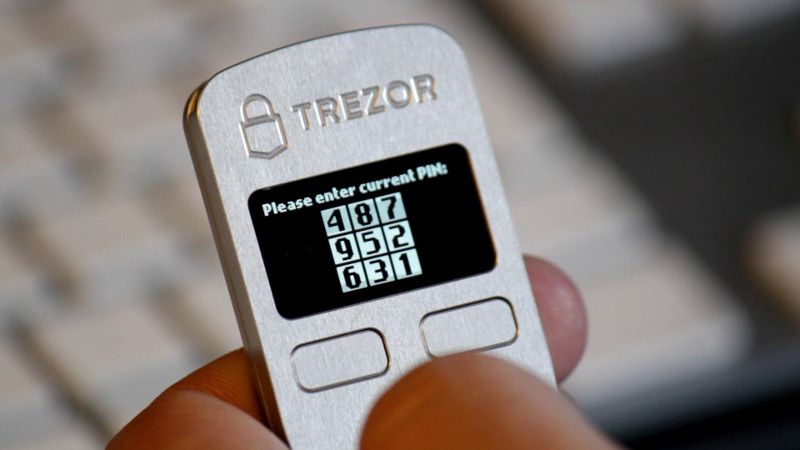
How to Use Your Hardware Wallet
Using a hardware wallet is easy. If you want to receive Bitcoin, you only need to share your public Bitcoin address. If you want to send Bitcoin, connect it to a computer and enter your PIN.
The hardware wallet will then notify your computer that you have permission to the wallet. You can see transaction history and create new transfers.
For example, if you want to trade your cryptocurrency on an exchange, you need to transfer the currency. But don’t forget to move your cryptocurrency back to your hardware wallet when you’re done.
It’s not safe to store Bitcoin and cryptocurrency on exchanges or with third parties.
If you use a hardware wallet, your Bitcoin will be protected from malicious code and viruses on the Internet. A hacker needs both your PIN and wallet in order to steal your Bitcoin.
To send a transaction, you must physically press or hold down buttons on the device. This is a security feature that all hardware wallets use.
User features and ease of use vary between different hardware wallets. All wallets have their own interface and software that supports different cryptocurrencies.
We recommend buying a Ledger or Trezor which are well-known manufacturers. These hardware wallets are popular on the market because they are both user-friendly and reliable.
CHAPTER 5
Benefits of Owning Two Hardware Wallets
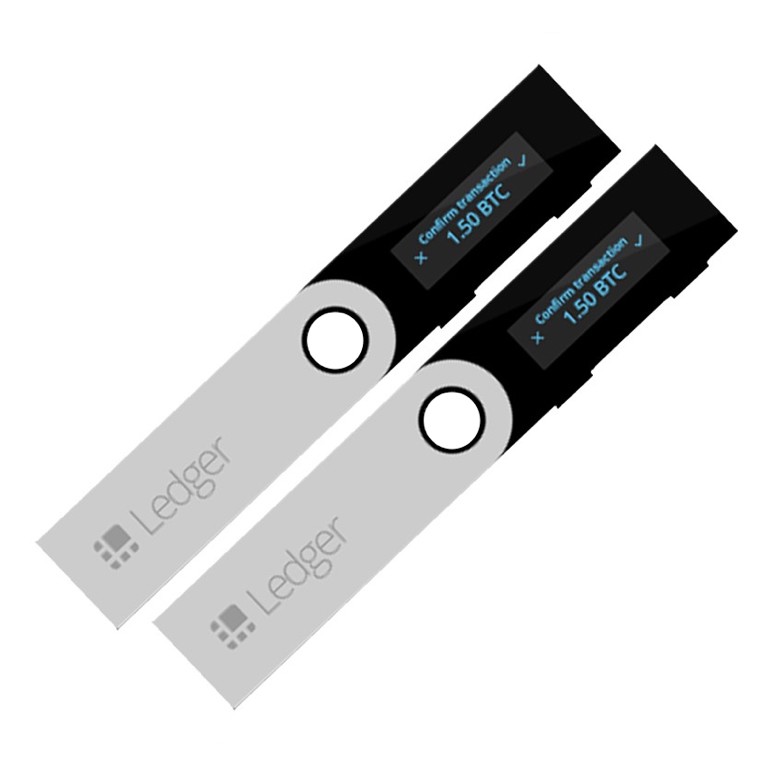
Why should I buy two or more hardware wallets?
If you’re new to the crypto market, it may be difficult to understand why you need more than one hardware wallet. But there are several advantages of owning multiple hardware wallets. Here we list all the benefits:
1. Keep a backup wallet at home
You may lose or get your hardware wallet stolen. If this happens, you will need to order a new wallet and restore your cryptocurrency with your recovery seed. You should restore your wallet as quickly as possible to protect your cryptocurrencies.
At the same time, you need to think about the security and that delivery times may vary. Never order a used hardware wallet or from a retailer such as Amazon or eBay. Always purchase the wallet from the manufacturer’s own website and make sure it’s unopened when delivered.
To avoid these security risks, you can order two hardware wallets and keep one as a backup wallet.
2. Create a clone of your wallet
If you have a large amount of Bitcoin or want to protect your cryptocurrency properly, you can clone your wallet. That means you have two wallets that both can see and sign transactions.
For example, you can keep one at home and one in the office if you need to make a quick transaction. Cloning your hardware wallet is easy.
Order two wallets, install one and restore it afterward with the other. If something happens to your hardware wallet, you’ll always have a backup ready to use.
3. Spread out the risks – Don’t put all your eggs in one basket
It’s impossible to exclude all risks on the crypto market. Even if you use all security measures available, you shouldn’t keep all your cryptocurrencies in one single wallet.
If you only have one hardware wallet and your recovery seed gets stolen, you will lose all your Bitcoin and cryptocurrency. Use multiple hardware wallets and spread the risk.
4. Access all the latest features
Bitcoin and cryptocurrencies are changing and improving all the time. This also means that the software for the hardware wallet is constantly updated.
For example, when a “hard fork” occurs, such as Bitcoin Cash or Bitcoin Gold. The company behind the hardware wallet needs to update its software. These updates vary in time and contain different user features.
The two most popular hardware wallets on the market are Ledger and Trezor. If you buy both you get the best of both worlds.
CHAPTER 6
Which Is the Best Hardware Wallet?

There is not one right answer to the question: Which is the best hardware wallet? However, there are many wrong answers. You should never buy a hardware wallet from an unknown manufacturer.
We have tested and can recommend the following hardware wallets; Ledger and Trezor. These wallets have the best security and are also user-friendly.
Bitcoin and cryptocurrency have exploded in popularity, and there is high demand for hardware wallets. This means that there may be waiting times of one or two months during certain periods. Keep this in mind when ordering your hardware wallet.
The most popular and cheapest hardware wallet on the crypto market is Ledger. The company has an affordable hardware wallet called Ledger Nano S. But they also offer a more advanced hardware wallet with a touch screen, Ledger Blue. Learn more and compare the wallets on their website.
With Bitcoin, you are your own bank. If you keep your Bitcoin on a software wallet, you can lose your Bitcoin. If you keep your Bitcoin at an exchange, it’s not your Bitcoin.
This is because your Bitcoin = your private keys. If you don’t control your private keys, you don’t own your Bitcoin. Protect your cryptocurrency correctly with a hardware wallet.
Below you will find the hardware wallet that we recommend on the Bitcoin market. Buy a hardware wallet and stay safe!
Risk Disclaimer: Don’t invest unless you’re prepared to lose all the money you invest. This is a high-risk investment and you should not expect to be protected if something goes wrong.
Frequently Asked Questions
Is your question not answered here? Let us know!
Bitcoin is a digital currency, also called cryptocurrency. More specifically, Bitcoin is an independent, global and public ledger used to transfer and store value (also known as money).
- It’s independent because no state or bank controls Bitcoin.
- It’s global because money can be transferred quickly and cheaply, anytime, to anyone.
- It’s public because all transactions are stored in a shared ledger.
Learn more in this guide: What is Bitcoin?
The safest Bitcoin wallet is called a Hardware Wallet. This means that your Bitcoins are stored on an encrypted device that is not connected to the Internet.
The safest way to store your cryptocurrency is with two hardware wallets (one main device/backup device) and metal storage for your recovery password, also known as “recovery seed”.
Compare and choose the safest Bitcoin wallet in our comparison table!
How to use a Bitcoin wallet can vary between different wallets. For using an online wallet, you usually only need to register an account.
However, you will need a hardware wallet to safely store your Bitcoin and cryptocurrency. For using a hardware wallet, you need to install it first. Don’t worry, there are simple instructions for all wallets in our comparison table.
We recommend that you order a Bitcoin Wallet that has been reviewed by CryptoRunner. All our reviews contain easy and clear instructions.
No matter what type of Bitcoin wallet you use, you should make a backup. Otherwise, you risk losing your cryptocurrency!
This means that you can reset your cryptocurrency if your wallet would disappear or break. We recommend that you purchase a physical Bitcoin wallet made of metal to back up your main wallet. Metal storage protects your backup against water, fire, and all other damage!
Compare and choose the best Bitcoin Wallet for your backup in our comparison table!
As with all currencies, the value depends on supply and demand. Bitcoin has value because there are high demand and low supply. Cryptocurrencies such as Bitcoin are available in limited amounts in the same way as precious metals such as Gold.
Also, normal fiat currencies such as Dollar and Euro have no limited supply. The central bank is creating more and more money which leads to inflation. Bitcoin protects your money from inflation.



Thank you for sharing this blog post.This blog post is a complete guide for beginner like me.
Nowadays, Theft & spam in cryptocurrency trading is increasing and everyone is looking for highly secured hardware wallet.
I heard about air gapped security feature of ELLIPAL hardware wallet and found more secured than other hardware wallet like Ledger, Trezor, and KeepKey.
Hello Ida,
We would not recommend ELLIPAL since they are a new company with less credibility. You don’t want to risk losing your cryptocurrency. There is no feature making it more secure than other hardware wallets.
/ CryptoRunner Team